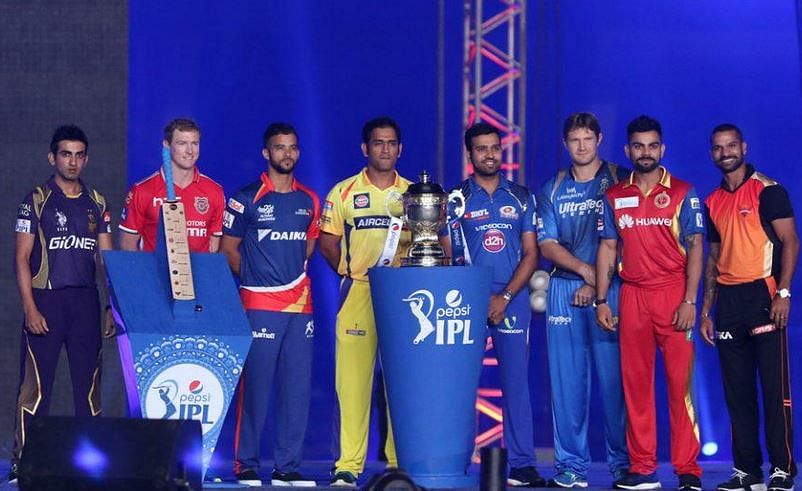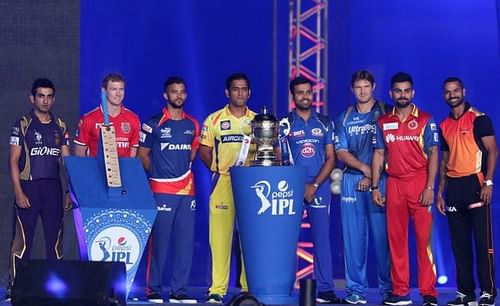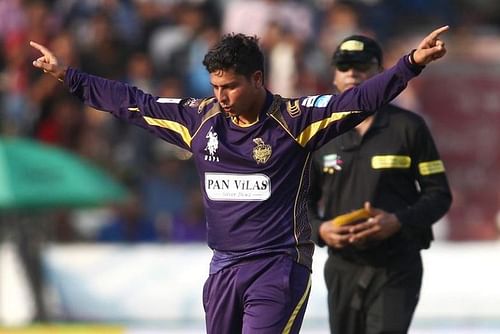
How a loan system could greatly benefit the IPL

The Indian Premier League (IPL) is the most watched T20 tournament in the world and its commercial success is improving every year, with a recent report stating that viewership has increased by 41% over the previous year. As the tournament evolves, one thing which has not changed much is the way in which franchisees can acquire players.
There are two ways by which teams can select players, through the annual auction or by trading with other teams. There has not been much innovation in this regard, even though we get to hear lots of new steps being taken by the governing council to promote the game amongst new audiences and increase commercial success.
The IPL must evolve
It is time that the IPL evolves and upgrades the process of selecting players. The world’s best players are available for selection for this premier tournament and the process of selection, retention and trading of players has to be revamped to keep pace with the growing interest in the game.
IPL is unique when compared to popular sports leagues like the English Premier League (EPL) in the sense that cricket is dominated by international matches and not league matches. But one thing that IPL can incorporate from the EPL is the flourishing player loan system between clubs.
The EPL’s loan system is so evolved that all parties concerned benefit from the loan. The club that loans the player saves funds and salary while the club that receives the player strengthens their roster. The player benefits the most, getting some much-needed game time. Even though time-wise, the commitment of players for the IPL is only two months, IPL can adopt the loan system to ensure parity and equitable distribution and more importantly, to address issues of players not getting opportunities despite being paid huge pay packets.
The trading window of IPL is mystic and nobody really knows who benefits from the trade and whether the player plays any role in the transfer. If the IPL has to modify its system, it should revamp the transfer window and bring in strict regulations and ensure that the entire process is transparent, like in other leagues. IPL should also have a mid-season inter-club loan system, wherein players can be loaned from one team to another, depending on all the three parties concerned.
The decision as to who bears what percentages of the salary of the player involved should also be decided amongst the two teams and not by the IPL governing council. There can also be a system of loan fees involved, which will go to the franchise who is loaning the player. This should in no way affect the salary cap of the team.
A loan window would make the tournament fairer and more exciting
This, in a way, will benefit teams and players alike. Teams, where a crucial player is injured, can use this as an opportunity to loan a temporary player from another team for that season alone. This will also help teams to structure their teams in a better way, as they can make changes to their team depending on current performances rather than going for recognised players in the auction.
If a team is doing badly, this gives them a chance to correct the composition of their team, rather than painfully watching their team underperform. This will also help players who are benched by their current team to seek a loan move to a different team. If the player has offers from other teams, the franchise may decide to loan him and lessen their spending.
If a player feels that he is not playing to his potential for a particular team and he can perform better in a different environment under a different captain and coach, a temporary move might prove to be best solution. The loaned players shouldn’t be allowed to play against his original team to avoid conflict of interests. This provides power to the players to seek moves in order to get playing time, something which is prevalent in every sports league in the world.
For instance, a team like Mumbai Indians (MI) can use the loan window to buy an opening batsman, due to the season-ending injury to Aaron Finch. Delhi Daredevils (DD) can attempt to replace Mohammed Shami with an Indian fast bowler like Abhimanyu Mithun, Parvinder Awana, Irfan Pathan or Ashok Dinda, players who aren’t being picked by their respective teams.
Probably, the biggest beneficiary of a loan window would be players like Dale Steyn and Manan Vohra. Steyn was benched in three matches due to Trent Boult and even though Sunrisers may need his services in the latter stages of the tournament, an opportunity is presented to the team and Steyn himself to take a call as to whether he will remain sitting on the bench or seek game time for a team like MI or Royal Challengers Bangalore (RCB), who need a foreign fast bowler.

Young Indian cricketers can benefit
Vohra is one of the most talented young cricketers in this country and Kings XI Punjab (KXIP) know it. But still, they aren’t able to accommodate him in their playing eleven because of their extremely strong batting line up consisting of Virender Sehwag, Murali Vijay, Glenn Maxwell, David Miller and George Bailey. It makes sense for Vohra to move to a team like MI or SRH who need a talented Indian batsman. It is evident that KXIP might not be willing to sell him permanently, but a loan move will surely help the player and KXIP themselves if he has a good tournament.
Teams can utilise this loan window to send some of their young Indian players to get some valuable experience in other teams. Teams like Chennai Super Kings (CSK) don’t chop and change their team often and it is often frustrating for a young Indian talent like Baba Aparajith, for whom IPL is a huge platform to perform. CSK could probably send him on loan to other teams and Aparajith could try impressing the team management of a side, which probably has a slot available for him.
Same is the case with youngsters like Shreyas Gopal of MI, Kuldeep Yadav of Kolkata Knight Riders (KKR), Rahul Sharma of CSK, Manvinder Bisla and Iqbal Abdulla of RCB. MI have not had a great tournament so far and a mid-season loan window presents them an opportunity to change their team composition and buy players based on current form and correct the mistakes they made in the auction.
In short, a loan window with clearly defined rules to empower all the parties involved will in turn bring value additions to the league. Perhaps, this is the push that IPL requires to take it to the next level and compete with other sports leagues at a global stage. As the IPL moves from nascent to established, it needs to revamp its player selection policies to empower the major stakeholders, the teams involved and the fans.